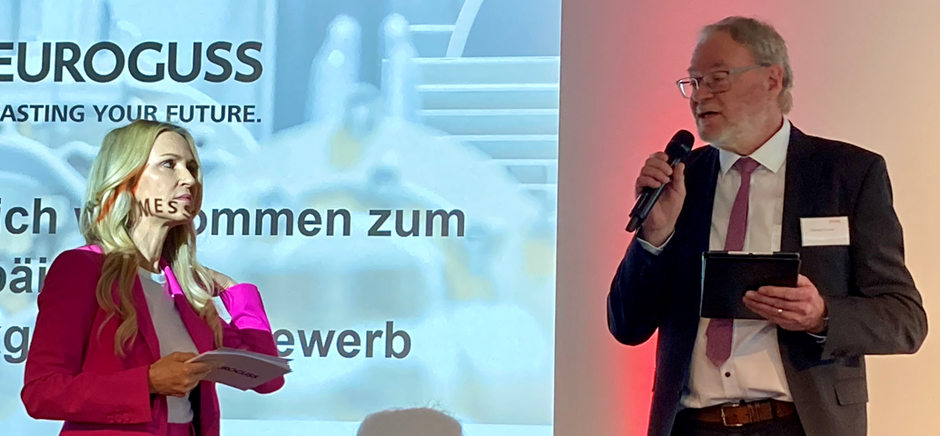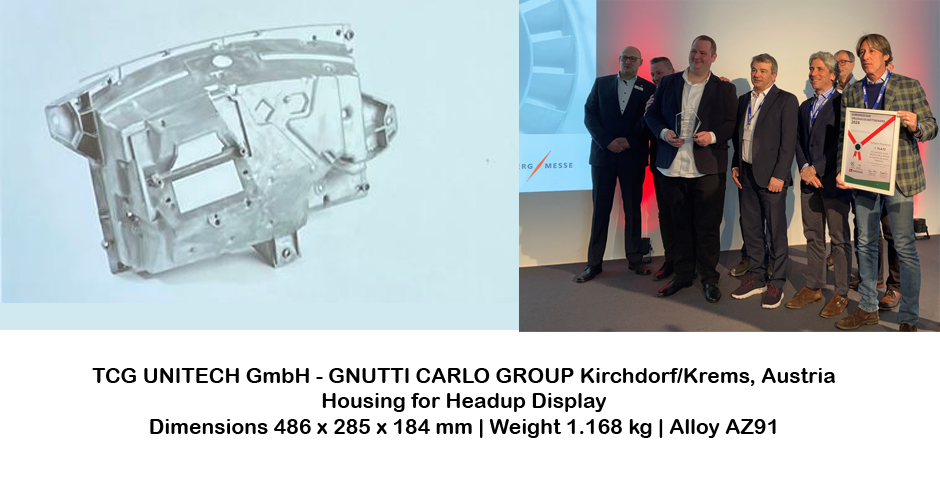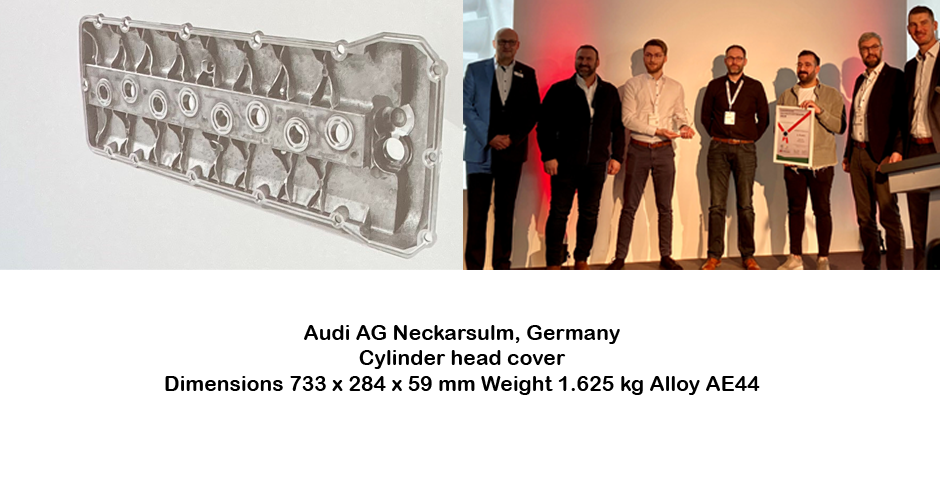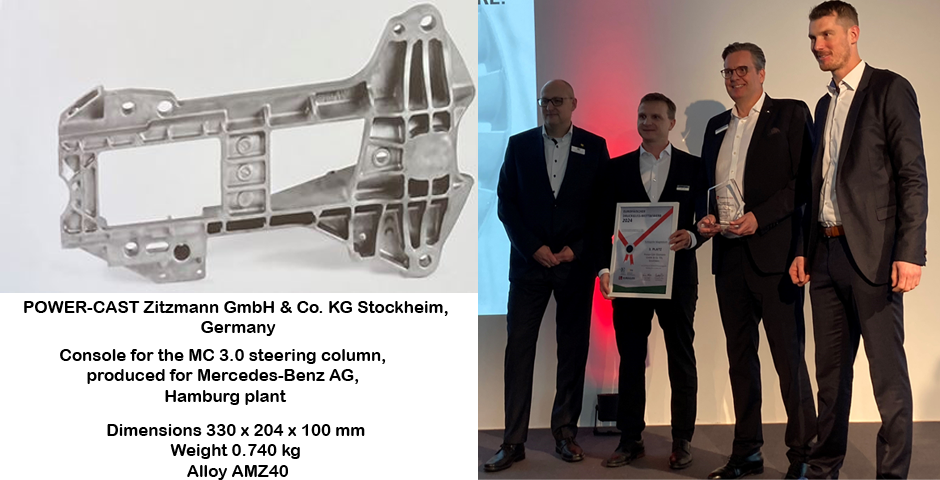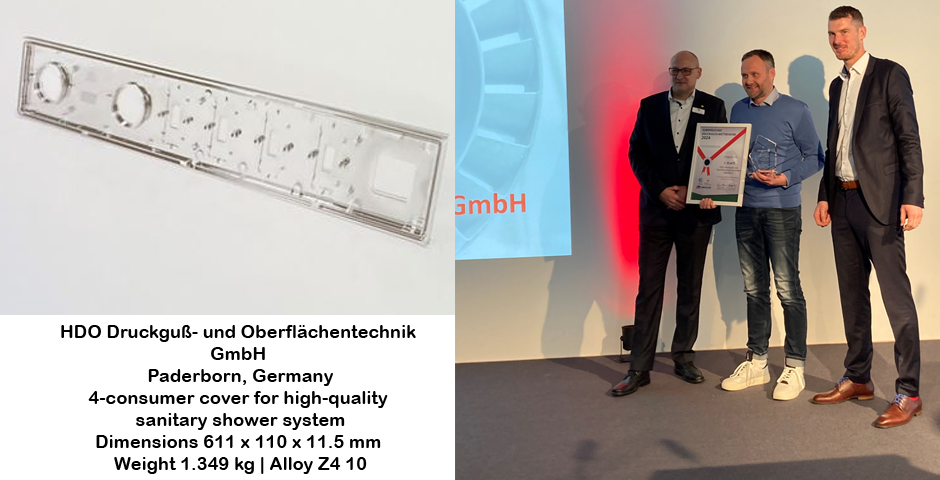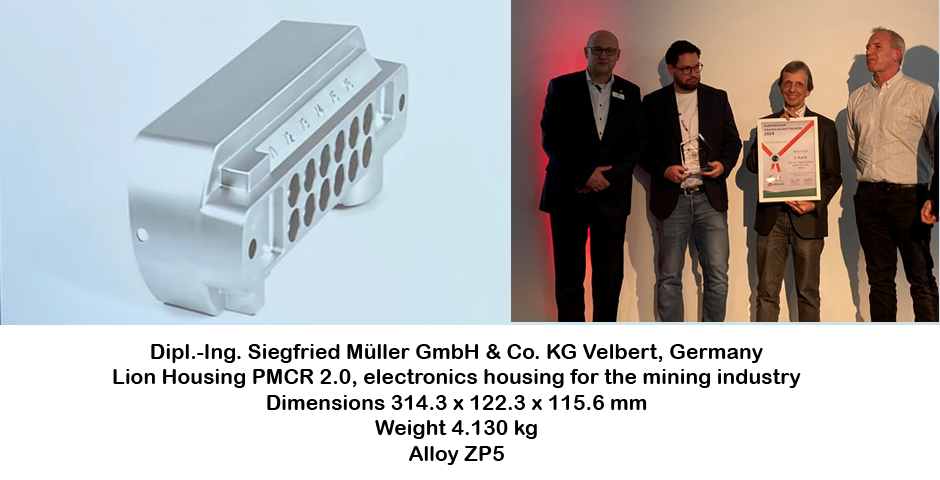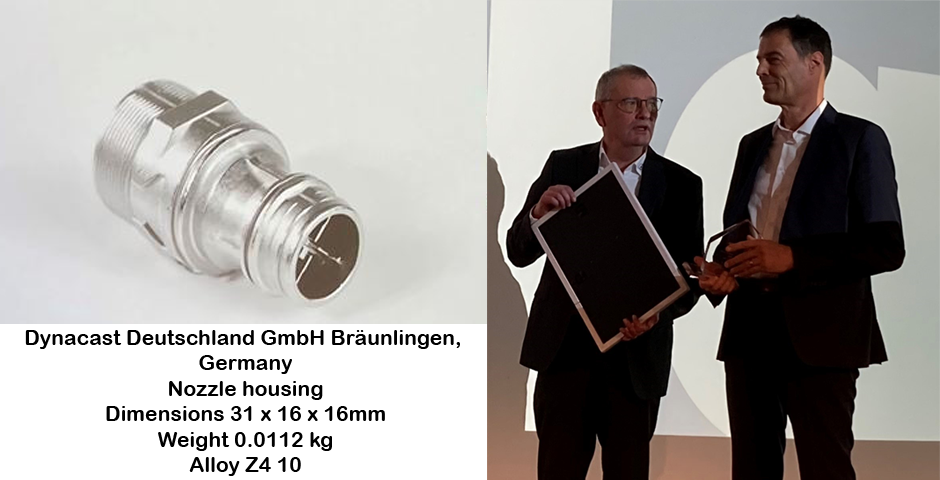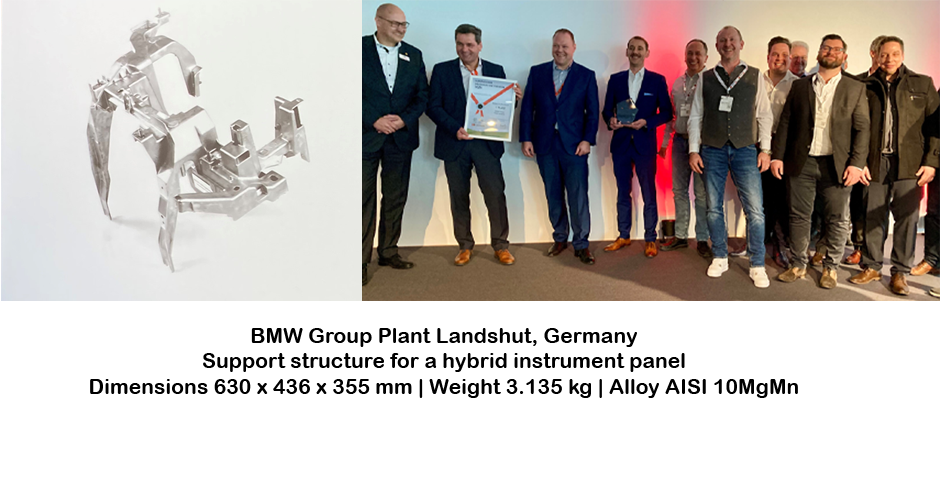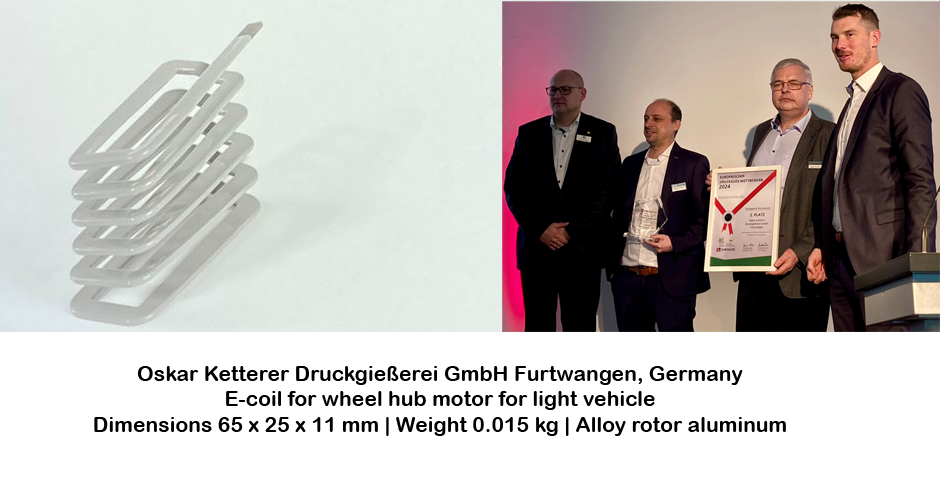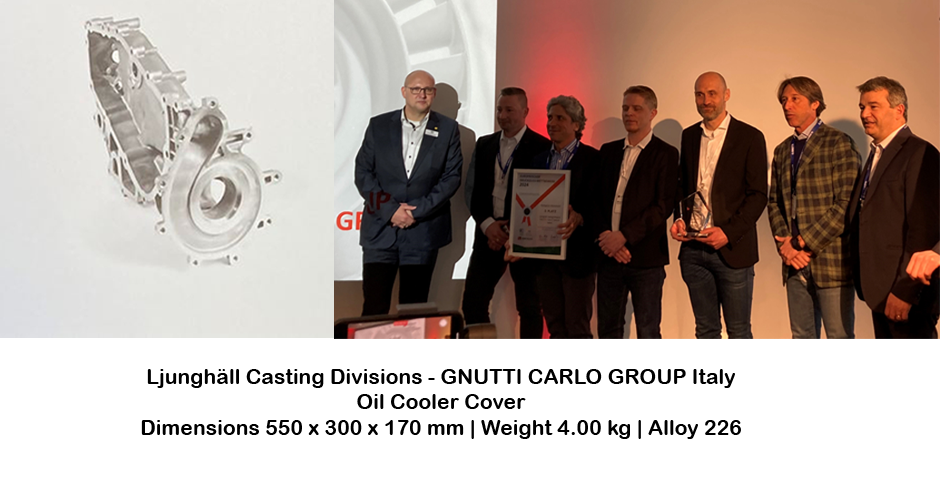At EUROGUSS 2024, the Association of German Die Casting Foundries (VDD) and the EUROGUSS trade fair once again organized the European Die Casting Competition. The competition is also supported by the Bundesverband der Deutschen Gießerei-Industrie e.V. (BDG) and Aluminium Deutschland e. V. (AD) and the Europäische Forschungsgemeinschaft Magnesium e.V. (EFM).
This competition presents to the public and customers in particular the variety of applications, the innovative strength, the high level of quality and the efficiency of the die casting forming process in the materials aluminum, magnesium and zinc.

